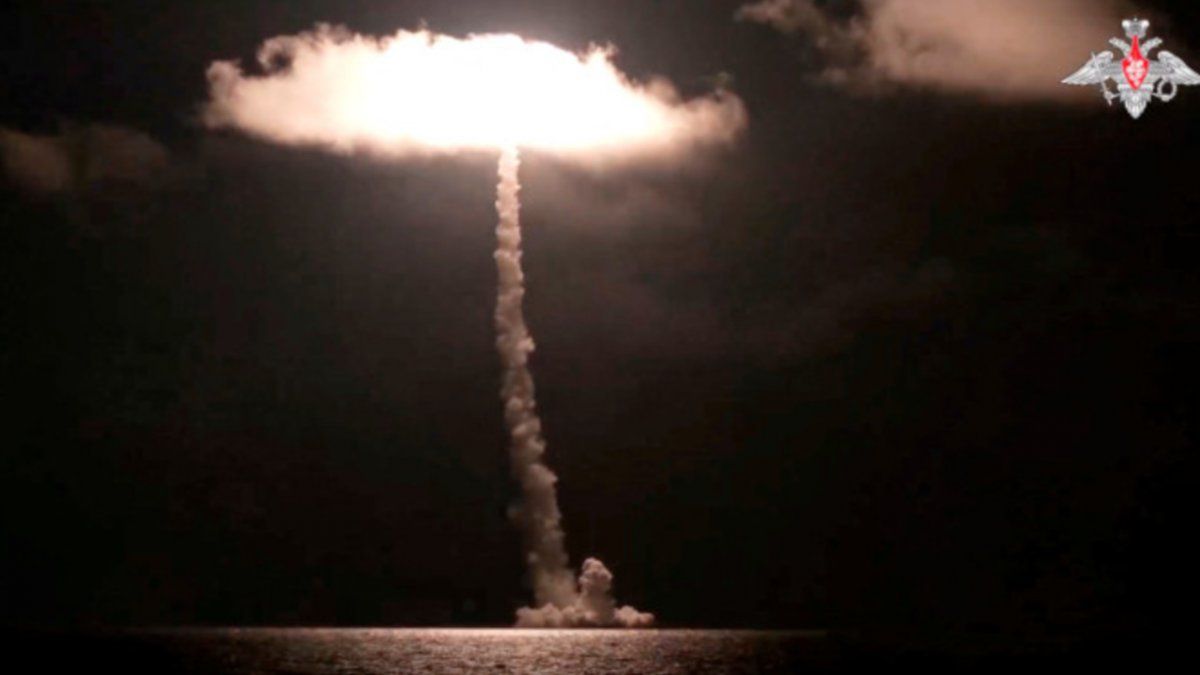Russia announced today that it successfully carried out the test launch from a ballistic missile nuclear submarine intercontinental vessel capable of carrying nuclear warheads, shortly after abandoning a treaty prohibition of atomic tests.
“The new strategic nuclear submarine Emperor Alexander III successfully fired the Bulava intercontinental ballistic missile” from the White Sea, the Russian Defense Ministry said in a statement.
The missile reached its target, located at a test range on the Kamchatka peninsula in the Russian Far East, “at the scheduled time,” the note added, the AFP news agency reported.
Bulava: what are the characteristics of this ballistic missile
With a range of 8,000 kilometers and a length of 12 meters, the Bulava (SS-NX-30 in NATO classification) can be equipped with ten nuclear warheads.
He submarine Emperor Alexander III, Borei class, is equipped with 16 Bulava missiles, according to the Russian Army.
The launch of the Bulava missile, the first in about a year, comes shortly after Russia will revoke its ratification of the Comprehensive Nuclear Test Ban Treaty (CTBT).
Since the start of the conflict in Ukraine on February 24, 2022, Russian officials have threatened to use nuclear weapons on several occasions, although on other occasions President Vladimir Putin has shown caution in this regard.
Moscow deployed tactical nuclear weapons in Belarus, its closest ally, in the summer of 2023.
russiamissile.png
Russia revoked nuclear test ban
Last week, Putin signed into law a law revoking Russia’s ratification of the Comprehensive Nuclear Test Ban Treaty, in a context of conflict in Ukraine and crisis with the West.
The 1996 treaty prohibits all nuclear weapons tests.
Although it never came into force, because some key countries – including United States and China- They never ratified it, it was ratified by 178 countries, including the nuclear powers, France and the United Kingdom and to this day, it has symbolic value.
Putin had said at the beginning of October that his country could revoke the ratification of the CTBT in response to the United States never ratifying it.
Its defenders of the agreement They claim that it establishes an international standard against nuclear weapons tests, But its detractors say the deal’s potential remains unrealized without ratifications by major nuclear powers.
Source: Ambito




